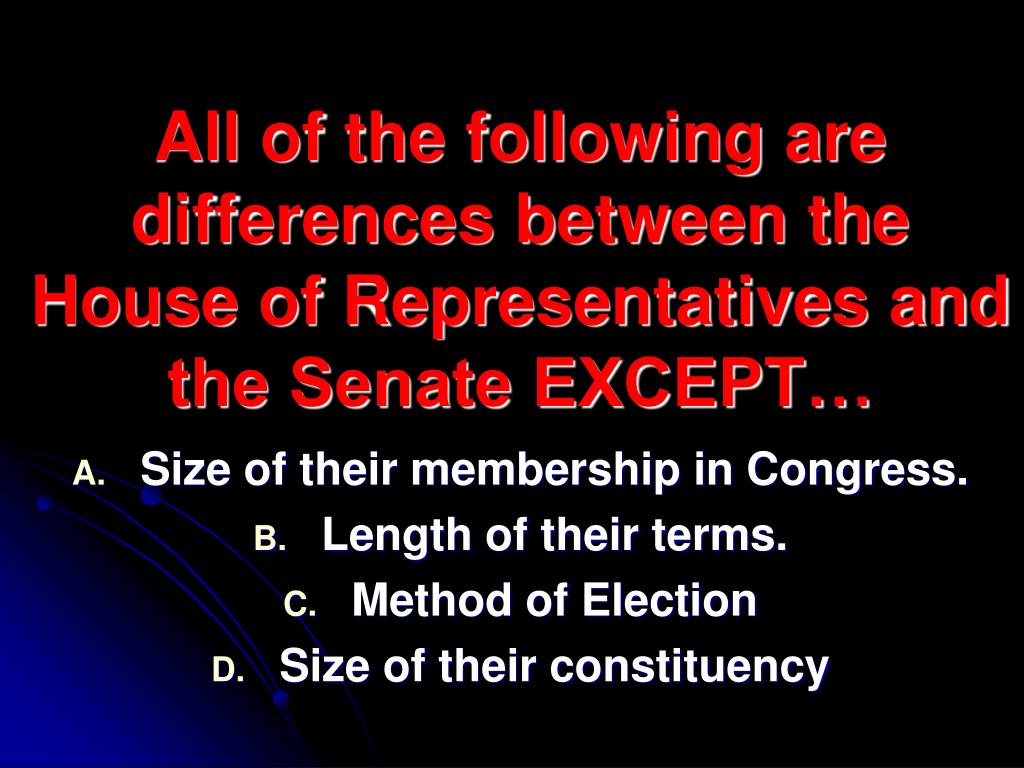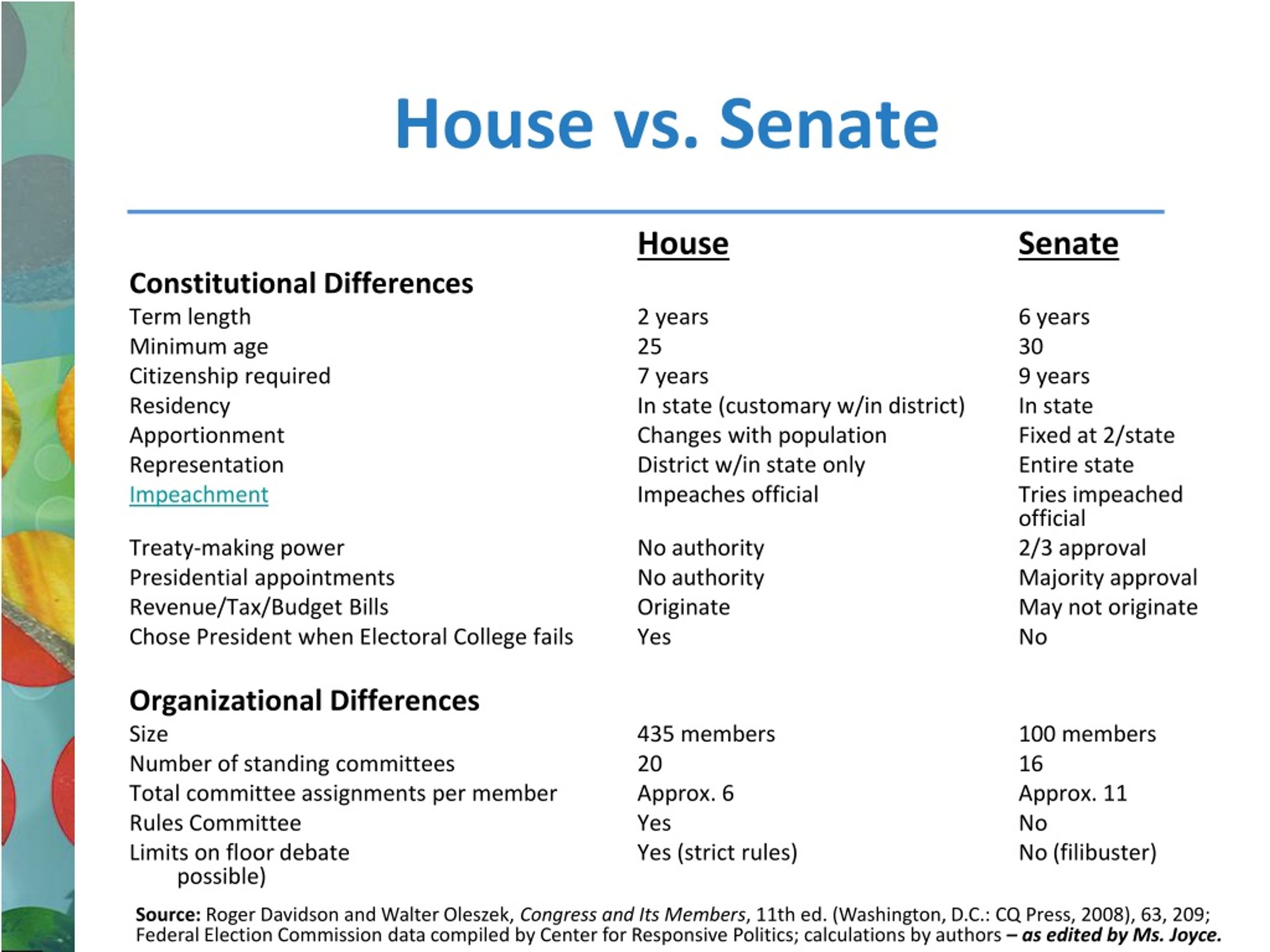Table Of Content

One of the basic principles of the American workplace is that a hard day’s work deserves a fair day’s pay. A cornerstone of that promise is the Fair Labor Standards Act’s (FLSA) requirement that when most workers work more than 40 hours in a week, they get paid more. The Department of Labor’s new overtime regulation is restoring and extending this promise for millions more lower-paid salaried workers in the U.S. Without controlling one of the houses, Donald Trump is now forced to rely on a Democrat-controlled house to pass his bills and with the current animosity between the two parties, that seems unlikely. The Senate is the upper House of the legislative wing of the US Congress.
New York State Senator
To bring the bills into alignment, a Conference Committee is convened, consisting of members from both chambers. The members of the committee produce a conference report, intended as the final version of the bill. Depending on where the bill originated, the final text is then enrolled by either the Clerk of the House or the Secretary of the Senate, and presented to the Speaker of the House and the President of the Senate for their signatures. The bicameral legislature that splits legislative duties between a large House of Representatives and a smaller Senate is a key component of the framers’ power-sharing strategy. Similarly, members of the Senate majority party are chosen to chair all committees. However, the nature of the Senate requires that the majority leaders of committees work with the ranking member of the minority party to accomplish the committee’s goals.
US Senate border security bill: What you need to know - Al Jazeera English
US Senate border security bill: What you need to know.
Posted: Mon, 05 Feb 2024 08:00:00 GMT [source]
MS Senate proposes change to House Medicaid expansion compromise. House will review
The Senate website explains that the majority party controls most committee staff and resources, but the minority party retains a level of control based on its share of Senate seats. The House majority leader is charged with formulating the party’s legislative agenda, as described by USHistory.org. The minority party chooses a minority leader whose impact on the House policy agenda is much more limited. The Constitution requires that senators be at least 30 years old, U.S. citizens for at least nine years, and residents of the states they’ll represent.
What is a Representative?
The senators or the members of the Senate are highly qualified and experienced people in their respective domains. One of the major functions of the Senate is its power to try impeachments and removals of the representatives of the House. OBRA 1985 was enacted as a response to the federal budget deficit, which was growing rapidly in the 1980s. The legislation aimed to reduce the deficit by making significant changes to a range of government programs, including reducing spending on social welfare programs and increasing revenue through changes to tax law.
Senators can use this to filibuster bills under consideration, a procedure by which a Senator delays a vote on a bill — and by extension its passage — by refusing to stand down. A supermajority of 60 Senators can break a filibuster by invoking cloture, or the cession of debate on the bill, and forcing a vote. After both chambers accept the bill, joint committees work out the differences between the two versions.
What's a Select Committee?
Finally, a conference committee made of House and Senate members works out any differences between the House and Senate versions of the bill. The resulting bill returns to the House and Senate for final approval. The Government Publishing Office prints the revised bill in a process called enrolling. Congressional districts have a smaller constituency than the state as a whole, and many House members have "safe seats," meaning that the political party in control of the district is highly likely to remain in control. This often leads to high incumbent election rates, as voters are more likely to re-elect the current representative rather than vote for a new candidate. Nevertheless, the House of Representatives remains a crucial part of the legislative process and plays an important role in representing the interests of the American people.
The Legislative Branch
The compromise established that representatives in the lower house (House of Representatives) will be based on a population number (called a "district") while the upper house (Senate) would contain two representative from each state. It was also decided that all classes would be eligible to become senators, subject to age and residency restrictions. This allowed the legislation to pass even in the face of opposition from some members of Congress.
The way in which the districts are drawn, however, can be influenced by the political party in control of the state legislature. This is because the state legislature is responsible for redrawing the districts to make sure each district is equal in population. In some cases, the legislature may choose to gerrymander the districts in a way that gives their political party an advantage in future elections. House leadership includes the speaker, majority and minority leaders, assistant leaders, whips and a party caucus or conference. The speaker acts as leader of the House and combines several institutional and administrative roles.

Anxiety over squatters, fueled by TikTok, inspires a wave of legislation
The apportionment was to be based on an enumeration (population census) that was to be made within three years of the Constitution being ratified (approved) by the 13 states, and then every 10 years thereafter. To be eligible as a representative, a person needs to be at least 25 years old at the time of the election and have lived continuously in the U.S. for at least 7 years. To become a senator, one must be at least 30 years old at the time of the election and have lived continuously in the U.S. for at least 9 years. It is not a requirement to be a natural-born citizen in order to become a member of Congress.
Congress, as one of the three coequal branches of government, is ascribed significant powers by the Constitution. All legislative power in the government is vested in Congress, meaning that it is the only part of the government that can make new laws or change existing laws. Executive Branch agencies issue regulations with the full force of law, but these are only under the authority of laws enacted by Congress. The President may veto bills Congress passes, but Congress may also override a veto by a two-thirds vote in both the Senate and the House of Representatives.
In order to pass legislation and send it to the President for his or her signature, both the House and the Senate must pass the same bill by majority vote. If the President vetoes a bill, they may override his veto by passing the bill again in each chamber with at least two-thirds of each body voting in favor. Congress has the power to override a presidential veto by a two-thirds majority vote of both the House and Senate. In addition to the Senate majority leader’s power to control debates on the Senate floor, the majority party is granted other rights in the operation of the Senate.

No comments:
Post a Comment